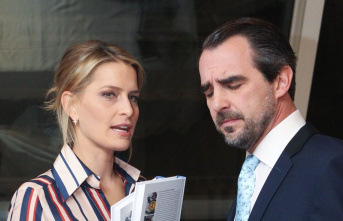The technology has improved, laws have been toughened and cultural piracy has fallen sharply in four years (according to data from the Ministry of Culture, from 18.3% to 5.1%, in the case of the music; and 16.1% to 3.7%, in the case of videos). But, above all, the services and products have improved so much that Netflix ended the third quarter with a profit of 665 million dollars, 65% more than in 2018, and Spotify reached 113 million users of payment, 31% more. Disney and Apple are the following three companies landed in the business of streaming.
The industry and users have taken nearly two decades to accept it, since the fall in misfortune of the CD to the extension of the streaming. Twenty years of cultural consumption digital to recognize that the Internet is not the enemy nor is it free. If in the first decade it took to pay for a connection, the end of the second decade it has been recognized that the contents also have a value and a price. “Since five years ago, with the new practices of consumption of digital cultural content in streaming is a good aspirational. The greater part of Spanish society has stopped to consider that you pay by listening to music or watching movies is pringaos”, is the balance of Ruben Gutierrez, director of the Foundation SGAE.
The cultural industry in Spain
Number of workers
thousands of people
723,3
726,6
700
570,6
600
505,6
500
400
300
200
100
0
2000
2008
2012
2019
Number of companies
In thousands of companies
122,7
125
112,6
100
75
49,6
50
25
0
2001
2009
2018
Source: INE and Ministry of Culture.
THE COUNTRY
The cultural industry in Spain
Number of workers
thousands of people
723,3
726,6
700
570,6
600
505,6
500
400
300
200
100
0
2000
2008
2012
2019
Number of companies
In thousands of companies
122,7
125
112,6
100
75
49,6
50
25
0
2001
2009
2018
Source: INE and Ministry of Culture.
THE COUNTRY
The cultural industry in Spain
Number of workers
Number of companies
thousands of people
In thousands of companies
723,3
726,6
122,7
125
700
112,6
570,6
600
100
505,6
500
75
400
49,6
300
50
200
25
100
0
0
2000
2008
2012
2019
2001
2009
2018
Source: INE and Ministry of Culture.
THE COUNTRY
Account of the responsible of the Yearbook of the performing arts, musical and audio-visual entity of management of rights of author, that the TWENTY-first century began with the inheritance of the TWENTIETH century until Napster caused the first impact with the future. Apple picked up the model for the creation of iTunes and the MP3 player (iPod). And in 2005 kicked off YouTube. A year later, Spotify. In 2008, Netflix —company DVD rental, founded in 1997— introduced its catalog for streaming.In 2010, HBO launched its own service. Companies that pull out in the middle of a decade that, in Spain, “it was a jungle that did not respect any right of the authors, with the complicity of the operators, which were enriched by selling meg ADSL to surf the internet without paying”, as pointed out by Rubén Gutiérrez.
Since then, the subscription model has been consolidated. It is a symptom of the culture has made peace with the new technologies, according to Juan Carlos Tous, ceo of Netflix, a platform pioneer movie online, operated since 2006, and that complies with your third year account balance positive: “the Internet has not come to compete, but to complement”. The employer points out a key change in the consumption habit of the leisure culture: you prefer to possess. “The user no longer wants to have it all because you can't have it all. But yes you can use it all,” says Tous.
The quality has convinced the user that what they pay is better than what you can get for free (and illegally). For the founder of Netflix the biggest change in these two decades of new digital paradigm, is that the consumer no longer wants to get out of the house for consuming culture. This new habit has brought to the cinema in danger. “The market does not stops growing and there is a 50% of households that do not have subscription to any audiovisual platform. There is still room for improvement,” he says.
The new market has forced to change the Law on Intellectual Property on three occasions and the next Government will face the fourth. Neither the Penal Code nor the Law on income TAX have been reformed so many times in these 20 years. The aim was to find the warranty of the holders of copyright and of access of the users, to clarify the responsibilities of the operators and the obligations of the new content platforms. “They have stayed with the production, distribution and exhibition. His power has grown so much that it has caused a new imbalance with the perpetrators”, explains Ibán García del Blanco, federal Secretary of culture of the socialist party and mep. Believes that is pending to strike a balance that protects the creator, but do not see it with mechanisms of a decade ago: “The canon by private copy doesn't make much sense to keep it for a long time,” he says.
it has Not been easy. Among the first directive of the European Parliament of 2001 and the second, passed in April, many things have happened. The cloud did not exist in 2001, it was only possible to copy to a CD. Now everything is streaming. The challenge now is to end the abuses of large companies that negotiate with the websites and their contents, and supporting the sustainability of cultural work. It is a pending task that is progressing in Spain, thanks to the Status of the Artist, whose development is included in the pact government of PSOE and Podemos, introduced yesterday, which also incorporates the creation of a “bureau of copyrights”. “The next fight will be how to price it to YouTube,” says Antonio Fernández, president of the Association for the development of intellectual property (ADEPI), for whom the legislator has understood that in the digital environment, collective management is more important than ever.”
Borja Adsuara, a lawyer expert in digital Law, does not see it this way: “collective management has been resentful with the independent operators, because in digital management can be individual, and not in the physical. It is very likely that the great authors assembled for its account an agency to bring them their rights.” This would imply the end of solidarity with other authors, who earn less.











